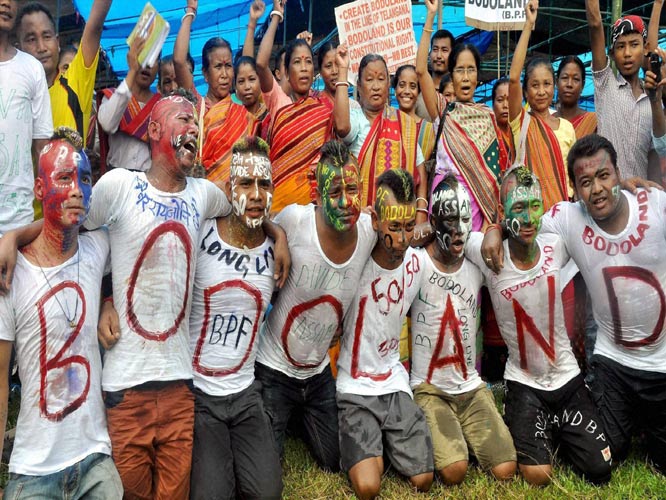Former ULFA Member Floats Non-Bodo Party in Bodoland
Bodoland

GUWAHATI: The political equation in communally sensitive Bodoland area in Assam is set to change dramatically with the formation of a new political party by some non-Bodo groups to challenge the hegemony of Bodo political parties in the area.
The new political party called, Gana Vikash Parishad, Asom has been floated at the initiative of, a former member of the United Liberation Front of Assam (ULFA) and the sitting Lok Sabha MP from the Bodoland Territorial Autonomous District (BTAD), Naba Kumar Sarania with intention to contest the forthcoming autonomous council election in the BTAD to challenge the two existing Bodo tribe dominated political parties in the area.
Numerous non-Bodo organisations fed up with hegemony of Bodo tribe political groups, had supported Sarania in the last Lok Sabha polls to end the domination of Bodo tribe groups that used to resort to intimidation of non-Bodo voters to win earlier elections in the area.
The BTAD area which experienced a number of communal riots and insurgency-related violence, is considered communally very sensitive because of uneasy co-existence of the Bodo tribe with other communities including Muslims in the area.
Though the area is called Bodoland, the Bodo tribe is not the majority community considering the population pattern of the area. The two existing dominant political parties in the area are Bodoland People’s Front (BPF) and Bodoland People’s Progressive Front (BPPF). The BPF which is now in power in the Bodoland Territorial Autonomous District Council (BTC), was formed by former militants of the now disbanded Bodo Liberation Tigers (BLT) that signed the Bodo Peace Accord with Government of India in 2003 paving the way for separate autonomous council for Bodos under the amended Sixth Schedule of the Constitution.
The BPF has been in power in the 40-member autonomous council where more than 75 per cent seats are reserved for Bodo tribe, since its inception by winning all the elections held to the council so far.
The BPPF is another political party formed by mainly by former students leaders of the Bodo tribe. So far all the elections in the Bodoland council areas have been fought between the BPF and the BPPF and the former has always emerged the winner allegedly by using money and muscle power.
With other communities raising their voices for more political rights in the Bodoland council, the communal harmony in the Bodoland area is now at stake, non-Bodo groups is bound to have a far reaching impact in the area given that there have been demands from various community to review the Bodo Peace Accord and the sweeping political rights it provided to the Bodo tribe whose population is much below 50 per cent in the demarcated Bodoland autonomous council area.



